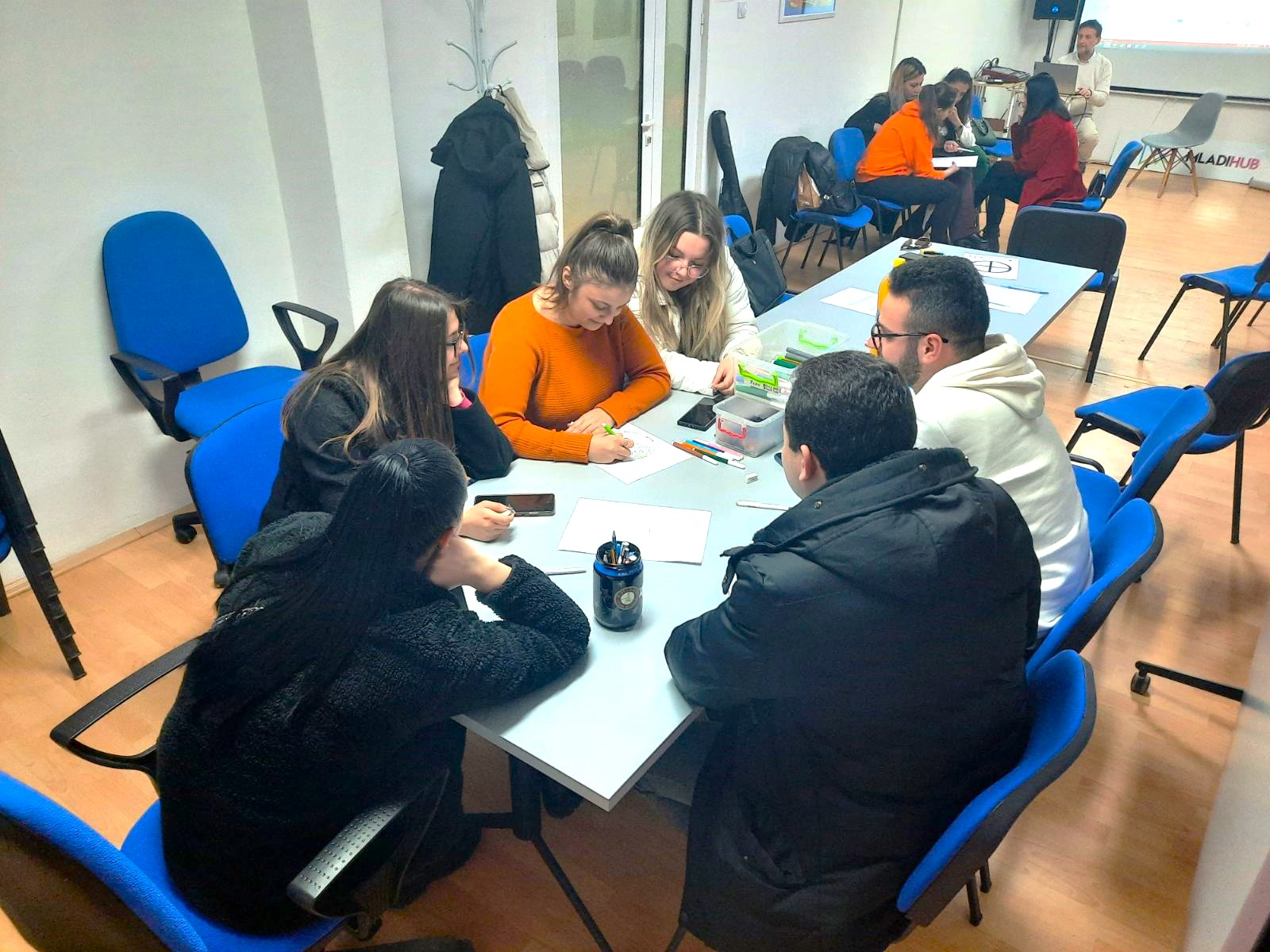Mental Health workshops for Peer Educators [module 4,5,6]

In the second semester, we continue with a new series of mental health workshops for peer educators from primary and secondary schools and faculties from Bitola. Modules 4, 5 and 6 are planned for this semester.
In the fourth module, the participants got acquainted with the digital representation of the topics covered in the previous three modules – anxiety, depression, risky behavior and personal endurance or resilience. On each of these topics, it was discussed how they are perceived by young people, how young people approach them and in general how life on social networks affects and shapes the young person in our modern life and what are the positive and negative influences on our mental health. In this module, we also did an exercise for self-assessment of Internet addiction, during which we could jointly discuss the results of the findings. At the request of some of the participants who were not able to attend this training earlier in groups, we made an additional workshop for educators from all groups. This module was completed by 42 peer educators divided into 5 groups of elementary school students, high school students and faculty students who got acquainted with the manifestation of these topics in the digital sphere. With this, we have closed the section on enriching the knowledge of young people on the subject of mental health.
The more interesting part followed, starting with the fifth module, which is preparation for the most beautiful part of the activities – sharing knowledge with peers on the ground in educational institutions in the city. Within it, the participants from three groups (faculty students, morning shifts and afternoon shifts, elementary and high school students) of the peer school for mental health for children and youth had the opportunity to recapitulate all the material that they went through in the previous four modules. In doing so, they perceived which of the learned topics they consider more important or useful for their young peers, or for which topic they have particular enthusiasm to share with their peers. We worked on coordination and formation of teams by schools and planning for their responsibilities for the next period. From our side, they received guidance and support on how to put together presentations and choose appropriate activities for the next phase when they will share some of the new knowledge with their peers from the schools and faculties of the city. We believe that the knowledge supplemented with practical activities will strengthen what has been learned among peer educators, and among students across the city, we will help bring and demystify the topic of mental health to everyone. This module was completed by 47 peer educators, 3 groups of elementary school students, high school students and faculty students.
In the sixth and final module, we offer teams of peer educators a unique mentoring experience in a supportive environment to receive feedback on their presentations. This is where peer educators come with their presentations, share them with other peer educators and where they can try them out and practice and get feedback on the “homeworks”. This will help them to continue working on improving them in order to make the next and most beautiful stage of sharing knowledge in schools less stressful for the peer educators and more interesting for all students. Peer educators from all groups of elementary school students, high school students and faculty students who are determined to share the acquired knowledge with their peers in practice participate in this module. This module is still being implemented, the teams are being built, coordinated, working on their presentations, coming for consultations and mentoring, and as soon as everyone is ready, we will update the text with figures and the final number of peer educators and teams per school in the city.
The project „Peer school for children and youth mental health“ of the Youth Association YMCA Bitola has been implemented in the frames of the regional program for local democracy in Western Balkans2 Reload2, financed by the European Union (EU), implemented by United Nations Development Program (UNDP). The project is co-financed by the Municipality of Bitola. The project has been implemented by the YMCA in cooperation with Poraka Nova and Amos.

One Response